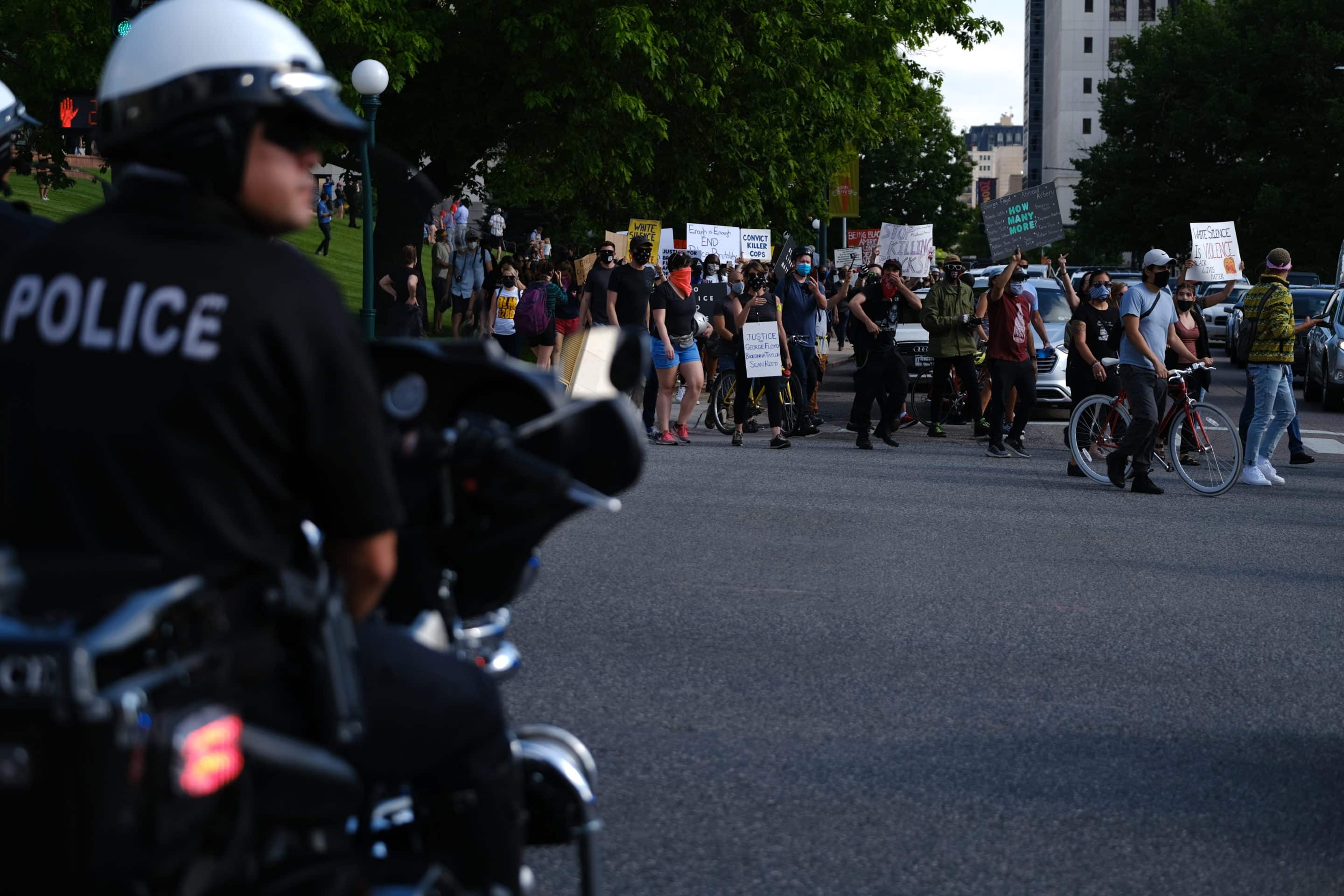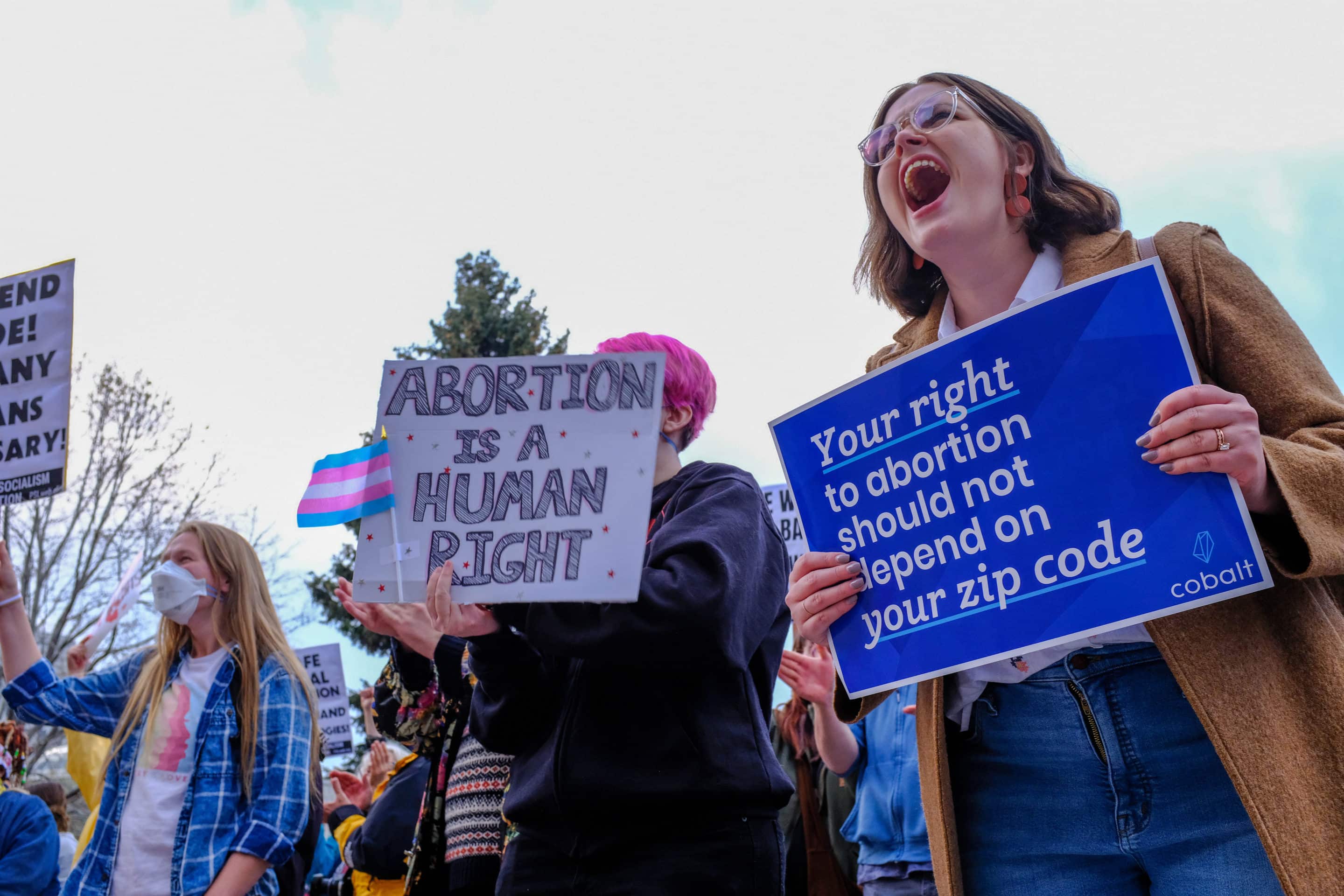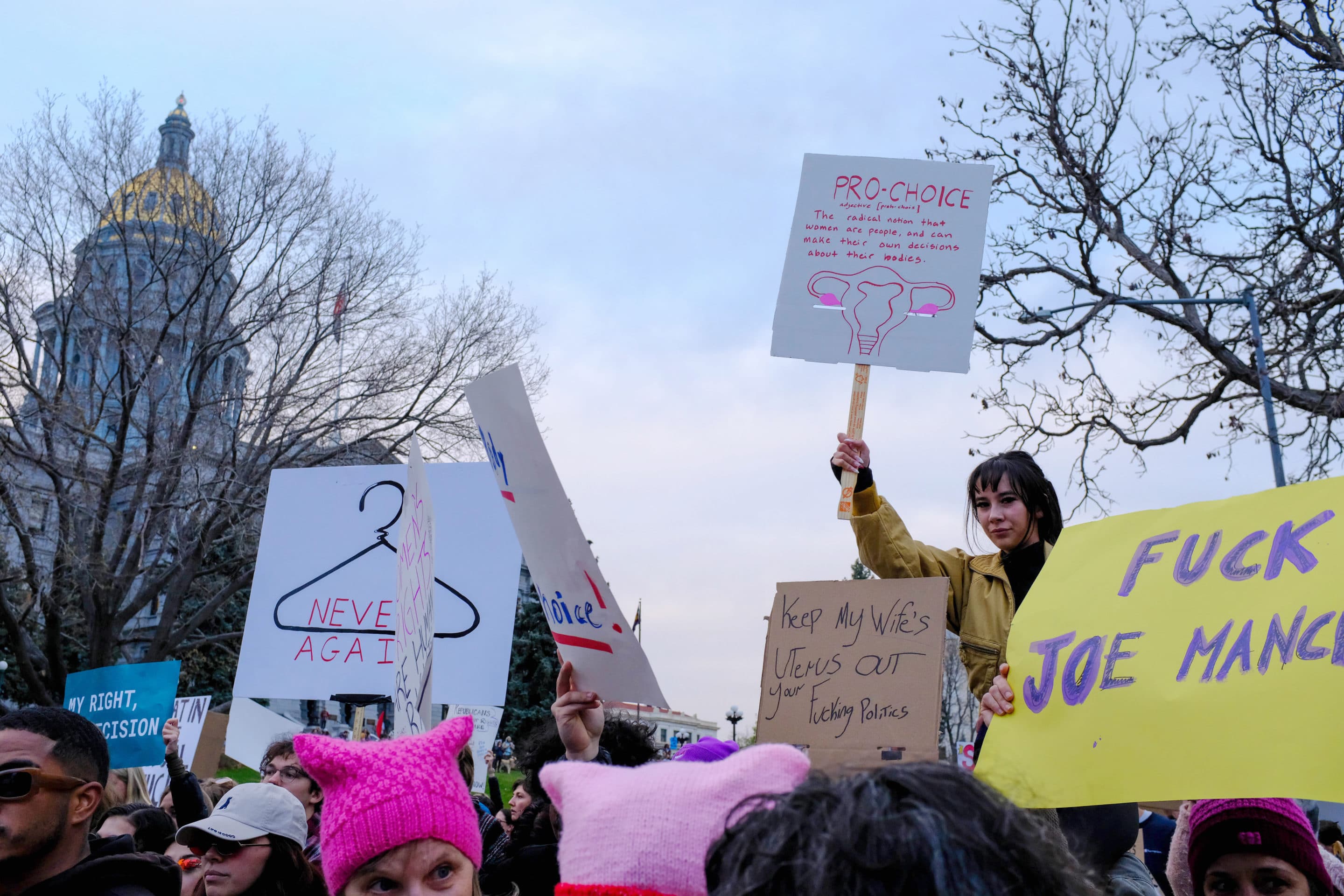Protesters descend from the Colorado State Capitol to protest police brutality and systemic oppression on May. 28, 2020. Photo by Esteban Fernandez | [email protected]
Fiery broadsides by Councilwoman Candi CdeBaca backed by a room full of supporters was not enough to overcome a wall of doubts and concerns from other city council members at their weekly meeting on Aug. 17. A trio of bills designed to pose a question to voters in November on whether or not to replace Denver’s Police Department with a peace force were either diverted or utterly went down.
“This body does look like a clown circus. We often do things very backwards. We’re unresponsive to the needs of our citizens and then they get frustrated and they make citizen led ballot initiatives,” CdeBaca said. “Then we campaign against them, like we did with 300, because they weren’t good policy. Because somebody like us didn’t write them.”
CdeBaca assailed the rest of city council at several moments during the meeting over their lack of meaningful engagement with members of the community. At one point, she even called out other council members for not reading the text of her bills. Making an impassioned defense of the Denver residents’ right to meaningfully engage in dictating city policy, she implored the council to allow “this response to community cries it’s place on our ballot and let our city decide for themselves.” She also told city council to not gatekeep the right to participate meaningfully and also not dictate that participation only happen on council terms.
At the heart of the matter were three council bills CdeBaca introduced before the weekend. The aim of the three bills is to reform peacekeeping in Denver by referring the issue to voters.
The first bill would create a nominating commission for the city attorney, which she said would give city council a seat at the table when it comes to hiring a new attorney.
The second bill would move the appointment of the independent monitor responsible for civilian oversight of the Denver Police and Sheriff to city council and give employees working in that office the protection of career service. CdeBaca argued that doing so was necessary because the current monitor, police chief and city attorney are all appointed by the mayor and so work side by side, which is counter intuitive for the purposes of an independent monitor.
The final bill, the proposed Peace Force, follows a continued summer of activism over police brutality and systemic racism that sparked across the country after George Floyd’s killing at the hands of police in Minneapolis. It asked voters to choose in November if CdeBaca’s plan to subsume the current police force into a Peace Force is one that Denver residents want to follow.
The proposed Peace Force would have been led by a Director of Peacekeeping Service appointed by city council and would replace DPD. It would be built in collaboration with members of the community, especially those that have been disproportionately impacted by law enforcement. The new department would seek to tackle the underlying causes of crime in a proactive effort to prevent it through the use of social and mental health services, as well as other types of city aid. The document in which the Peace Force is laid out calls the preservation of dignity of life its highest priority. Officers in the Peace Force would lack any form of immunity and be held liable should any forceful action they take that results in the harm of another is deemed unnecessary.
The push back from other council members was forceful, with Councilwoman Deborah Ortega at one point saying she felt that city council was being bullied on how they should vote on the bills.
“This presents us with a classic false dilemma. That if we don’t eliminate the Denver Police Department, that must mean we support systemic racism and oppression, and that’s an utter fallacy. We don’t have just two choices,” said Councilman Kevin Flynn.
Calling the bill disrespectful to the broader community that has already been organizing on this issue, Flynn said it was fundamentally flawed. He pointed to a section in the Colorado Constitution that specifically calls for Denver to have a police force. He questioned how any attempt to abolish DPD would square with this reality. Flynn also dismissed accusations from CdeBaca that the committee process had been weaponized against her bills. Instead, he flipped the accusation around on CdeBaca claiming that what he saw was weaponized chaos to push an agenda.
Flynn also praised Denver Police as being a far more progressive police force than many others across the country, including the one in Camden, NJ, which was disbanded and reconstituted in 2012.
The first two bills were re-referred back to committee for more work, while the final one was killed by council. CdeBaca said that the issue would eventually reach the polls one way or the other.
Despite the contention, however, several council members showed interest in some of the goals of CdeBaca’s bills. Although CdeBaca was taken to task several times by other council members for springing the new ordinances on them at the last minute, there was a lot in the bills themselves that many were open to considering further down the line. The biggest concern for several council members, however, was that the proposals, in their current form, weren’t vetted, picked apart, and otherwise strengthened by committee process. At one point, Councilwoman Robin Kniech even pointed out that they were doing committee work on the floor.
With many questions on the finer points of the bills left unanswered, several council members expressed deep reservations about presenting such unfinished legislation to voters. Another prominent rebuke was passing a change to the Denver charter based on an incomplete ordinance that could only be changed through a city wide vote.
Electoral concerns were also raised. There was worry that an incomplete bill would give ammunition to opposition groups, lowering the chances that the proposals would pass. And if the bill failed, then future reforms along the same lines would be even harder to undertake.
While supporters who showed up to back CdeBaca at city hall were enthusiastic, not all activism groups supported the proposed bills.
“Programs like DASHR and STAR are working as alternatives to law enforcement in our communities right now, and we would have liked to have seen them included in drafting the motion,” said Ariel Lipscomb, BLM5280 Executive Liaison, in a statement. “Due to their lack of inclusion and some of the language concerning funding and personnel we cannot say this iteration of the Peace Force is the kind of reform we do need at this time.”
DASHR and STAR are both community led alternatives to police that have aid workers and mental health experts respond to non-criminal 911 calls. They go in place of a police officer who would typically answer the call.
Lipscomb elaborated that drafting alternatives to the police is a step toward redefining peacekeeping in a post abolitionist society, however that they will not accept just any alternative. Work must continue on determining exactly what alternatives are needed and to continue to support those who are already doing that labor, she wrote.
Despite the failure of her bills tonight, however, one thing is clear. Councilwoman CdeBaca seized the agenda over police reform, making abolition front and center in Denver.





0 Comments